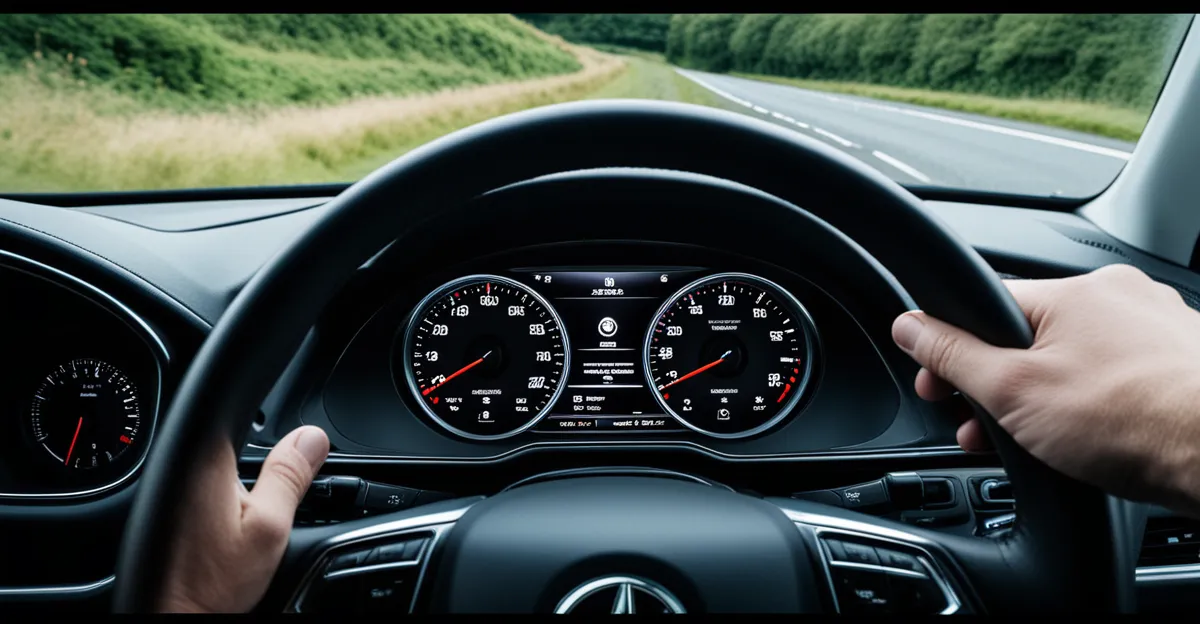Overview of Key Challenges in the UK Automotive Industry Today
The UK automotive industry challenges are multifaceted and urgent. Central issues include supply chain disruptions, Brexit-driven trade uncertainties, and the rapid transition to electric vehicles. Recent data reveals production delays due to parts shortages and semiconductor scarcity, significantly affecting manufacturers and suppliers alike.
These challenges hold considerable significance for the industry: manufacturers face halted assembly lines; suppliers struggle with fluctuating demand; consumers experience longer waiting times and increased vehicle prices. Labour market pressures, especially skills shortages intensified by post-Brexit recruitment hurdles, further compound operational difficulties.
In the same genre : How Can the UK’s Automotive Sector Innovate Amidst Global Challenges?
Moreover, evolving regulatory standards aimed at emissions reduction introduce compliance complexities and added costs. The industry’s current issues demand strategic adaptation, including investment in technology and workforce upskilling. Understanding this industry overview is crucial for stakeholders navigating these obstacles and planning for sustainable growth in a competitive, post-pandemic, post-Brexit landscape.
Impact of Supply Chain Disruptions
Supply chain disruptions have emerged as a critical UK automotive industry challenge, directly affecting production and delivery schedules. The scarcity of essential components, especially semiconductors, has created bottlenecks, causing assembly lines to halt and delaying vehicle availability. Semiconductor shortages underline the industry’s heavy reliance on international suppliers concentrated in specific regions, making the supply chain vulnerable to geopolitical and pandemic-induced shocks.
Have you seen this : What Challenges Does the UK Automotive Industry Face in 2024?
Logistics challenges compound these issues, with transportation delays and increased freight costs further straining supply continuity. Manufacturers and suppliers must navigate these complexities to maintain production efficiency and meet consumer demand.
To address these challenges, the industry is adopting several mitigation strategies. These include diversifying supplier bases, increasing inventory buffers, and investing in digital supply chain monitoring for greater transparency and responsiveness. Additionally, some firms are exploring local production of critical components to reduce dependency on global supply networks. These adaptations are essential for cushioning the effects of ongoing supply chain volatility and ensuring resilience in the sector’s recovery efforts.
Brexit-Driven Uncertainties and Trade Barriers
Brexit-related trade agreements have introduced several fresh obstacles for the UK automotive industry, including tariffs and increased customs checks. These barriers complicate the import/export process, slowing down the movement of parts and finished vehicles. As a direct consequence, manufacturers face delays and higher costs, disrupting production schedules and reducing competitiveness.
This impact extends to EU-UK automotive trade, traditionally a cornerstone of the sector. Divergence in regulations has created compliance issues requiring additional paperwork, certifications, and quality controls. These complexities hinder seamless cross-border operations that previously supported efficient supply chains.
UK automakers are adapting by revising sourcing strategies to reduce dependency on EU suppliers and seeking new markets for exports. Some companies are enhancing local procurement and modifying production footprints to mitigate tariffs and logistical burdens. Such strategic shifts demonstrate the industry’s responsiveness to evolving Brexit-driven uncertainties, essential for sustaining growth amid current issues.
Electric Vehicle Transition and Associated Difficulties
The EV transition presents one of the most significant UK automotive industry challenges today. Government mandates for emission reductions are accelerating demand for electric vehicles, pressuring manufacturers to rapidly upscale production. However, obstacles around battery production limit growth; the UK currently lacks sufficient battery manufacturing capacity, causing reliance on imports that can delay EV availability.
Infrastructure also poses a critical barrier. Although charging networks are expanding, coverage remains uneven, especially in rural areas. Insufficient charging points affect user convenience and deter mass EV adoption. Additionally, affordability is a persistent concern: electric vehicles often carry higher upfront costs than traditional models, impacting consumer choice.
The industry is responding by investing in innovation and partnerships to boost local battery production and develop more cost-effective technologies. Expansion of public and private charging infrastructure is underway to improve accessibility. These steps are vital for overcoming the multifaceted challenges tied to the electric vehicle transition, ensuring that sustainability targets align with market realities and consumer needs. Addressing these issues is key to the UK automotive sector’s progression toward a greener future.
Labour Market Pressures and Skills Shortages
Labour shortage remains a pressing UK automotive industry challenge, worsened by post-Brexit border changes and pandemic-related disruptions. Recruitment difficulties limit access to skilled workers critical for manufacturing, engineering, and emerging EV technologies. Employers face stiff competition to attract talent amid expanding skill demands.
The skills gap is pronounced due to rapid industry shifts, particularly with the EV transition requiring expertise in battery systems, software, and electronics. Traditional automotive roles are evolving, accelerating the need for upskilling and retraining initiatives. Workers must adapt to new technologies to remain relevant, while companies must find ways to support continuous learning.
Industry bodies and training programs play a vital role in addressing these current issues. Efforts include partnerships with universities and vocational institutions to cultivate future talent pipelines. Moreover, firms are adopting apprenticeship schemes and digital tools to enhance workforce capabilities. Successfully mitigating labour market pressures is essential for sustaining production levels, meeting innovation goals, and maintaining competitiveness in the evolving automotive sector.
Regulatory Compliance and Environmental Standards
The UK automotive industry challenges increasingly involve stringent UK automotive regulations focused on emissions reduction. Compliance with evolving environmental standards compels manufacturers to invest heavily in cleaner technologies and to redesign vehicle fleets. Meeting these emissions targets requires upgrades in production processes and adoption of low-emission engines, pushing up operational costs.
Manufacturers face complex regulatory frameworks that change frequently, requiring continuous monitoring and flexibility. This complexity can delay product launches and complicate supply chain coordination, adding further burden to an already stressed sector. Compliance costs include not only technological upgrades but also administrative expenses linked to certifications and reporting.
Companies are responding by integrating sustainability into long-term strategies, investing in research and development to innovate cleaner powertrains such as hybrid and electric options. Collaboration with regulatory bodies helps ensure alignment and smoother implementation. Balancing regulatory demands while managing cost pressures remains a pivotal current issue that shapes the industry’s future, pushing it toward greener but more costly production paradigms.
Economic and Cost Pressures
Economic and cost pressures present critical UK automotive industry challenges currently shaping the sector’s landscape. Rising energy prices and increased raw material costs, including steel and plastics, drive overall production expenses upward. Inflation further intensifies financial strain, affecting manufacturers, suppliers, and consumers alike.
The cumulative effect leads to higher vehicle prices, influencing consumer demand trends and exacerbating affordability concerns. With many buyers weighing cost against evolving vehicle technologies, demand shifts can disrupt market stability. For manufacturers, navigating these cost pressures requires balancing profitability with competitive pricing strategies.
To manage these current issues, companies employ various approaches. Some absorb costs temporarily to maintain market share, while others pass increases onto consumers cautiously. Strategic sourcing, supply chain optimization, and production efficiency improvements are also common measures. Moreover, automakers increasingly explore innovation to reduce material dependency and energy consumption.
Understanding and addressing these economic and cost pressures remain vital for sustaining competitiveness amid volatile automotive market conditions. The industry’s ability to adapt financially influences not only short-term survival but also long-term resilience and growth potential.
Industry Responses and Forward-Looking Strategies
Addressing UK automotive industry challenges requires robust industry adaptation and innovative approaches. Manufacturers and suppliers are increasingly investing in cutting-edge technologies to enhance production flexibility and reduce reliance on volatile supply chains. Innovation spans from automation to smart manufacturing systems, enabling quicker response to disruptions.
Collaboration is another cornerstone of current industry responses. Partnerships among automakers, technology firms, and government bodies facilitate knowledge sharing and resource pooling. Government support programs provide critical funding and regulatory guidance, encouraging sustainable practices and accelerating future outlook improvements.
Furthermore, shifts in business models reflect long-term strategic thinking. Some companies explore mobility services alongside traditional manufacturing to diversify revenue streams. Others invest heavily in research and development of electric vehicles and battery technologies, anticipating market demand growth.
Industry leaders emphasize resilience as a key priority, focusing not only on overcoming immediate current issues but also on positioning the sector for evolving global contexts. This includes environmental commitments, digitalisation, and workforce transformation, all integral to sustaining competitiveness and unlocking new opportunities in the UK automotive market.






